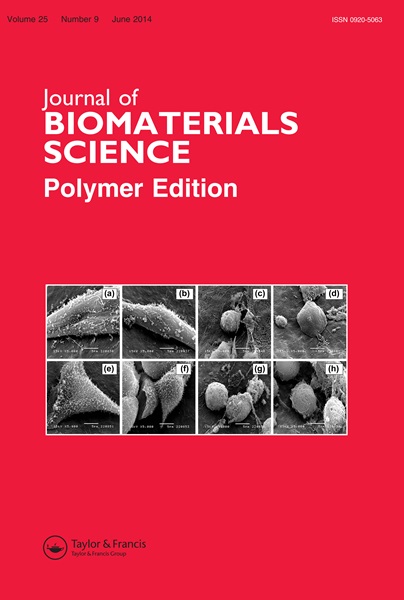Development of bio-based polymeric blends - a comprehensive review.
IF 3.6
4区 医学
Q2 ENGINEERING, BIOMEDICAL
Journal of Biomaterials Science, Polymer Edition
Pub Date : 2024-09-09
DOI:10.1080/09205063.2024.2394300
引用次数: 0
Abstract
The current impetus to develop bio-based polymers for greater sustainability and lower carbon footprint is necessitated due to the alarming depletion of fossil resources, concurrent global warming, and related environmental issues. This article reviews the development of polymeric blends based on bio-based polymers. The focus on bio-based polymers is due to their greater 'Sustainability factor' as they are derived from renewable resources. The article delves into the synthesis of both conventional and highly biodegradable bio-based polymers, each crafted from feedstocks derived from nature's bounty. What sets this work apart is the exploration of blending existing bio-based polymers, culminating in the birth of entirely new materials. This review provides a comprehensive overview of the recent advancements in the development of bio-based polymeric blends, covering their synthesis, properties, applications, and potential contributions to a more sustainable future. Despite their potential benefits, bio-based materials face obstacles such as miscibility, processability issues and disparities in physical properties compared to conventional counterparts. The paper also discusses significance of compatibilizers, additives and future directions for the further advancement of these bio-based blends. While bio-based polymer blends hold promise for environmentally benign applications, many are still in the research phase. Ongoing research and technological innovations are driving the evolution of these blends as viable alternatives, but continued efforts are needed to ensure their successful integration into mainstream industrial practices. Concerted efforts from both researchers and industry stakeholders are essential to realize the full potential of bio-based polymers and accelerate their adoption on a global scale.生物基聚合物混合物的开发--综述。
由于化石资源的耗竭令人担忧、全球变暖以及相关的环境问题,目前有必要开发生物基聚合物,以提高可持续性并降低碳足迹。本文回顾了基于生物基聚合物的聚合物混合物的开发情况。之所以关注生物基聚合物,是因为它们从可再生资源中提取,具有更高的 "可持续性因素"。文章深入探讨了传统生物基聚合物和高生物降解性生物基聚合物的合成,每种聚合物都是从大自然的恩赐中提取的原料。这项工作的与众不同之处在于对现有生物基聚合物混合的探索,最终诞生了全新的材料。本综述全面概述了生物基聚合物混合物开发的最新进展,涵盖其合成、特性、应用以及对更可持续未来的潜在贡献。尽管生物基材料具有潜在的益处,但与传统材料相比,它们仍面临着混溶性、加工性问题以及物理性质差异等障碍。本文还讨论了相容剂、添加剂的重要性,以及进一步促进这些生物基共聚物发展的未来方向。虽然生物基聚合物共混物有望实现无害环境的应用,但许多生物基聚合物共混物仍处于研究阶段。正在进行的研究和技术创新正在推动这些共混物发展成为可行的替代品,但仍需继续努力,以确保它们成功融入主流工业实践。要充分发挥生物基聚合物的潜力并加快其在全球范围内的应用,研究人员和行业利益相关者的共同努力至关重要。
本文章由计算机程序翻译,如有差异,请以英文原文为准。
求助全文
约1分钟内获得全文
求助全文
来源期刊

Journal of Biomaterials Science, Polymer Edition
工程技术-材料科学:生物材料
CiteScore
7.10
自引率
5.60%
发文量
117
审稿时长
1.5 months
期刊介绍:
The Journal of Biomaterials Science, Polymer Edition publishes fundamental research on the properties of polymeric biomaterials and the mechanisms of interaction between such biomaterials and living organisms, with special emphasis on the molecular and cellular levels.
The scope of the journal includes polymers for drug delivery, tissue engineering, large molecules in living organisms like DNA, proteins and more. As such, the Journal of Biomaterials Science, Polymer Edition combines biomaterials applications in biomedical, pharmaceutical and biological fields.
 求助内容:
求助内容: 应助结果提醒方式:
应助结果提醒方式:


